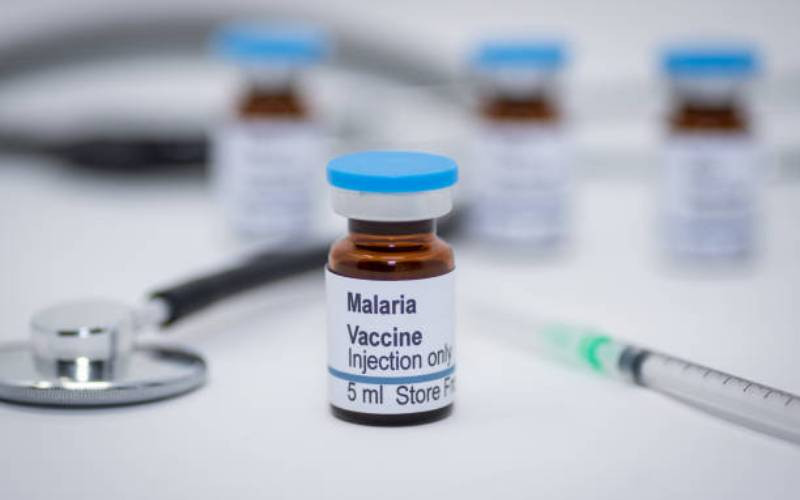
Kenya is among three African countries which will benefit from funding the rollout of the world’s first-ever malaria vaccine.
Local scientists among them, Dr Patricia Njuguna from Kemri, successfully piloted the malaria vaccine (RTS) in Western Kenya alongside their counterparts in Ghana and Malawi since 2019. The vaccine has since been authorized by the World Health Organisation (WHO) the culmination of nearly two decades of research.
Fighting malaria, however, is backed by heavy donor funding including the Bill & Melinda Gates Foundation, who recently told the Associated Press that they won’t offer direct financial support against malaria, but rather, fund an alliance backing the malaria vaccine.
One such alliance is Gavi (Global Alliance Vaccine Initiative) which has opened an application window for malaria support of nearly $160 million (Sh19 billion) for three years to 2025 to facilitate increased vaccine access to children at high risk of illness and death in Africa.
The Gavi MD of Country Programmes, Thabani Maphosa, said about 260,000 children under five die of malaria annually, but the malaria vaccine has seen a great reduction in the risks including admissions of severe cases of malaria and deaths.
Kenya, Ghana and Malawi are being prioritized in the rollout as “these three countries have experience with the malaria vaccine rollout and will require little to set up their systems to prepare for receiving the vaccine,” said Maphosa.
Other countries with a moderate-high burden of malaria have also been encouraged to apply and express interest, indicating how they would need to be helped to begin with the rollout.
Maphosa added that the vaccine is a result of the global health community partnering with African governments to fight malaria in between interventions like the issuance of treated bed nets to save lives. It was also at Kemri that the research that made the mosquito-nets standard of care in the world was done.
Though the demand for the vaccine will be greater than the volumes in supply, the biggest challenge, noted Maphosa, will be ensuring available doses are used as effectively and equitably.
Gavi is partnering with WHO whose Regional Director for Africa, Dr Matshidiso Moeti, said the pilot countries like Kenya vaccinated over 300,000 children since the vaccination began with a 30 per cent drop in the hospitalization of children with severe malaria.
Further, there was a reported near 10 per cent reduction in child deaths in the age group that is eligible for the vaccine in the pilot countries.
Dr Moeti said the already high demand against the supply of the malaria vaccine was indicative that parents, caregivers and the community understand the toll malaria takes and are eager to protect their children.
“If delivered to scale,” she said, millions of new cases could be averted and tens of thousands of lives saved every year.”
WHO assured it will prioritize highly endemic countries but guided allocations will result in achieving equitable access for all eligible children and “there is increased attention for donors, health leaders and manufacturers who need to sort out the demand-supply challenge,” said Dr Moeti.
She added that WHO will work with partners to boost manufacturing capacity to increase vaccine access, “and ultimately change the trajectory of this devastating disease.”
The fight against malaria was boosted during the Kigali Summit on Malaria and NTDs which took place in Kigali, Rwanda this June. Fifty-four Commonwealth Heads of government, representing 60 per cent of the world's malaria burden on all continents, committed to ending malaria by 2030 with $4.5 billion (Sh540 billion) of commitments with $2.2 billion (Sh260 billion) coming from malaria-endemic countries to the global fund.
Their main target is to fuel the Zero Malaria brand and campaigns in high-burden and Commonwealth countries starting in Kenya.
At a glance
2019: When piloting of the malaria vaccine began in Kenya, Ghana and Malawi
30%: Drop in the hospitalization of children with severe malaria during the piloting phase involving 300,000 children
2030: When 54 countries representing 60 per cent of the world's malaria burden on all continents, committed to ending malaria
 The Standard Group Plc is a multi-media organization with investments in media
platforms spanning newspaper print
operations, television, radio broadcasting, digital and online services. The
Standard Group is recognized as a
leading multi-media house in Kenya with a key influence in matters of national
and international interest.
The Standard Group Plc is a multi-media organization with investments in media
platforms spanning newspaper print
operations, television, radio broadcasting, digital and online services. The
Standard Group is recognized as a
leading multi-media house in Kenya with a key influence in matters of national
and international interest.











